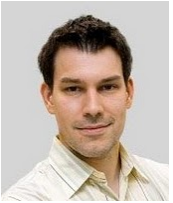p. 7 Never underestimate the vital importance of finding early in life the work that for you is play.
p. 12 on the ed system:
1) preoccupation w/certain sorts of academic ability
2) hierarchy of subjects
3) growing reliance on particular types of assessment
p. 14 - the value of dance - the Gillian Lynne story
p. 22 - the Element has 2 main features: aptitude (i get it) and passion (i love it)
and 2 main conditions: attitude (i want it) and opportunity (where is it)
p. 31 - there are the 5 senses, the 6th sense - intuition, and a basic sense - balance
p. 35 - too many people take for granted our ideas about intelligence, ie: athletes, dancers, musicians, etc.... draw from the deep reserves of feeling and intuition and of physical reflex and coordination that use the whole brain and not only the parts at the front that we associate with rational thinking.
p. 38 - Alfred Binet, one of the creators of the IQ test, intended the test to serve precisely the opposite function. ..to identify students w/special needs so they could get appropriate forms of schooling. Binet says: the scale he created does not permit the measure of intelligence, because intellectual qualities are not superposable, and therefore cannot be measured as linear surfaces are measured.
p. 41 - Carl Brigham, inventor of the SAT... disowned it 5 yrs later, .. the SAF is in many ways the indicator for what is wrong with standardized tests: it only measures a certain kind of intelligence.....via John Katzman, founder of the Princeton Review, "what makes the SAT bad is that it has nothing to do with what kids learn in high school. as a result, it creates a sort of shadow curriculum that furthers the goals of neither educators nor students..."
p. 42 - wrong question.. how intelligent are you.... right question... how are you intelligent.
yeah.. just read the book... 13th root guy... needs a brain rest.. etc.
p. 69 - brilliance of Feynman from playing... the pleasure of finding thing out.
p. 74 - find the medium that excites your imagination
p. 84 - if you find a place where everybody else likes the same thing that you do, it really becomes fun.. (pln baby) ... you're almost unconscious to what's going on around you...
p. 92 - Dr. Mihaly Csikszentmihalyi - pronounced "chicks-sent-me-HIGH-ee" - the flow guy.. where work and play become one... {i really just wanted to write his name}
p. 114 - tribal dynamics: 1) validation 2) inspiration 3) synergy
p. 117 - up to a point, you welcome being interrupted because it is only by interacting with other people that you get anything interesting done... physicist Freeman Dyson.
p. 118 - find your people
p. 120 - Dylan spends the day listening to Guthrie... and he says... a voice in my head said - so this is the game.
p. 121 - when tribes gather in the same place, the opportunities for mutual inspiration can become intense.
p. 126 - on committees vs teams... creative teams have a distinctive personality and come together to do something specific. they are together only for as long as they want to be or have to be to get the job done.
p. 137 - Paulo Coelho, author of The Alchemist, was put in an asylum by his parents 3 times because they wanted him to become a lawyer not a writer. they believed they were protecting him.
p. 140 - Arianna Huffington - the biggest obstacles to achievement can be self-doubt and the disapproval of other people.
p.164 The Element by @SirKenRobinson - ...catching polio opened many more doors for me than the one it so firmly closed at the time...
p.159 The Element by @SirKenRobinson -.. it's not what happens to us that determines our lives - it's what we make of what happens..
p. 178 The Element: ..mentroing takes an elevated role for people when it involves directing or inspiring their search for the Element.
p. 179 ff:
4 roles of mentors
1) recognition (specifics w/in discipline)
2) encouragement (things thought impossible before meeting)
3) facilitating (can even be other kids)
4) stretching (push us past asymptotes - self-reliance)
p. 181 - zig when everyone else is zagging..the fastest path to success is often to go against the flow..
p. 183 - it's important for students to rub up against people who have actually done or are doing the thing that the students are learning. they don't really need to tell you much, just show you what they do.
p. 184 - it might be overstating things to suggest that the only way to reach the Element is with the help of a mentor, but it is only a mild overstatement.
p. 184.. equally as important as having a mentor is to mentor others... it is even possible that you'll find that your own real Element is as a mentor to other people.
3 small chapters left....
________________________________________________




















































